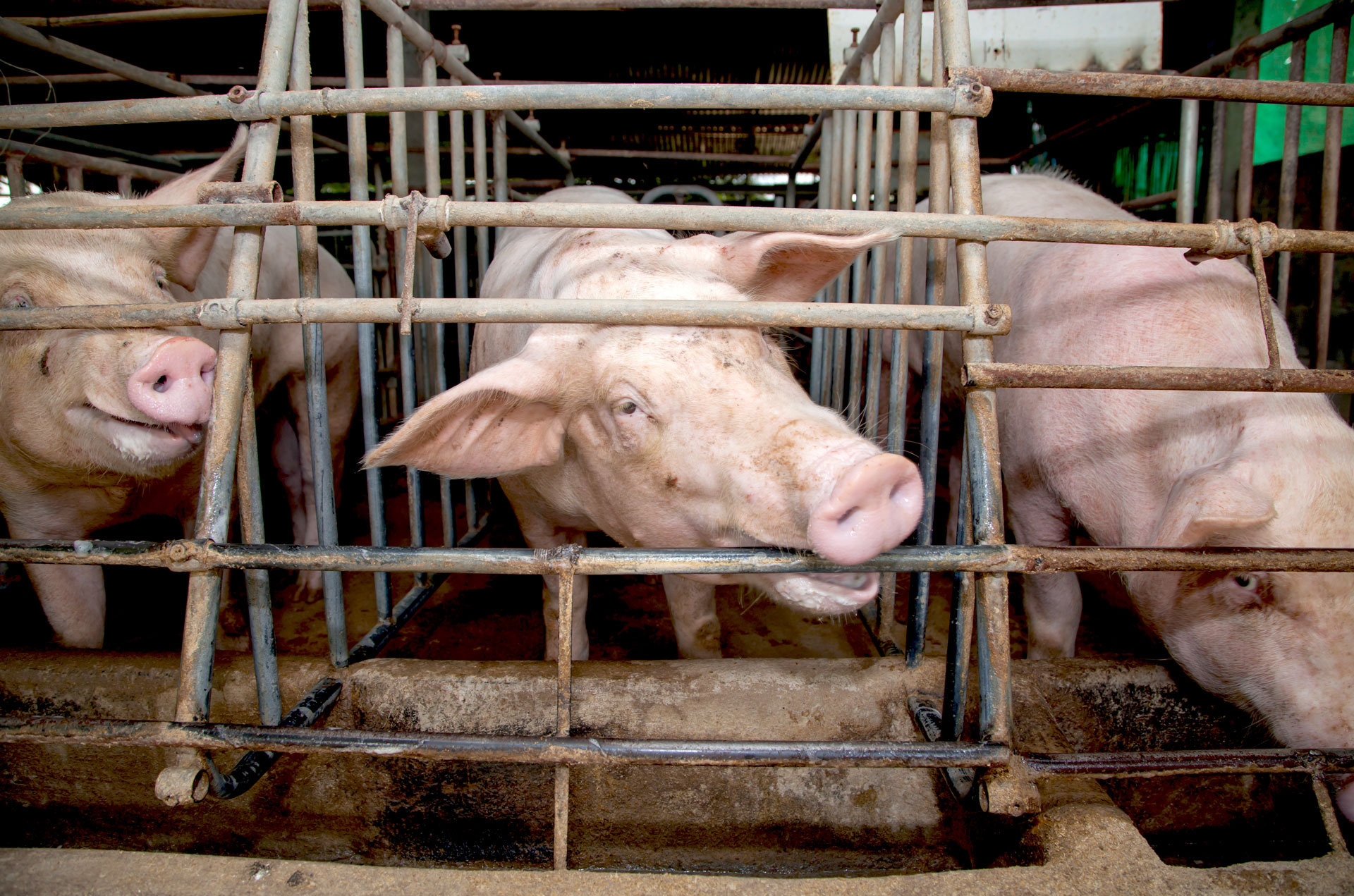Ag-Gag Laws Help Hide Animal Abuse on Factory Farms
In 1904, journalist Upton Sinclair went undercover to research his novel that described the grotesque conditions for both workers and animals in the meatpacking industry. “The Jungle” created public outrage, and ultimately led to the authorization of the Meat Inspection Act, legislation which regulates sanitary conditions for slaughter.
Today, in response to journalists and activists harnessing Sinclair’s muckraker energy and going undercover in agricultural facilities, powerful corporations have influenced state laws to prevent this kind of whistleblowing. These laws are referred to as “Ag-Gag” laws. Ag-Gag laws have been growing in popularity since around 2011, but efforts to challenge them are gaining ground.
What Are Ag-Gag Laws?
You might have, at some point, seen a grainy video of animals being grossly mistreated on a factory farm (or CAFO — concentrated animal feeding operation). Videos like these are usually taken — and then distributed publicly — by undercover journalists and animal welfare activists who seek to pull back the curtain on animal welfare, food safety and labor issues at these large scale facilities.
Ag-Gag laws are laws put in place under the guise of protecting farmers from those acting under false pretenses since these whistleblowers often use fake identities. But their true purpose is to keep the public from knowing the details of how the literal and metaphorical sausage gets made. Ag-Gag laws began popping up in the ‘90s in states with large and powerful livestock industries, such as Idaho, Utah and North Carolina.
FREE SPEECH ISSUES WITH AG-GAG LAWS
Critics of Ag-Gag laws argue that laws put in place to criminalize free speech violate the Constitution. They argue that whistleblowers and journalists working to inform the public about inhumane, illegal and unsafe practices in industrial agriculture are protected under the First Amendment. As a result, Ag-Gag legislation is often challenged by lawsuits across the country for being unconstitutional.
In order to sidestep these challenges, lawmakers in some states have gotten creative: after a judge struck down an earlier Ag-Gag law, Iowa legislators crafted a new crime, “agricultural production facility trespass.” Under this approach, entering or seeking employment at a factory farm with the intent to deceive or economically harm is a form of trespassing. This allows investigative journalists and others to be prosecuted without technically limiting their rights to free speech. Animal rights groups dubbed this rebrand Ag-Gag 2.0, and described the law as “a blatant attempt to circumvent the federal court’s ruling.”
Successful Challenges to Ag-Gag Laws
Because many of these laws directly or indirectly seek to limit free speech, animal rights organizations, environmental groups and civil liberties unions have successfully challenged them in court. In some cases — like the Iowa trespass law — judges limit the implementation of the laws, while in others they overturn sections of the law completely.
In June 2020, a Federal Judge struck down North Carolina’s Property Protection Act, which was passed in 2015 mainly as an Ag-Gag law, although it extended to other industries as well. Rather than making hidden cameras and investigations a form of trespassing, the PPA allowed employers to sue anyone for damages to their business resulting from whistleblowing activities.
After an extended legal battle where 23 environmental and animal rights groups filed a friend of the court briefs, a federal judge declared most of the law unconstitutional. Lawyers successfully argued that existing laws against trespassing were more than enough to protect businesses from people who falsely took on jobs so they could investigate facilities and that the PPA overstepped by limiting first-amendment rights to free speech for whistleblowers. Animal rights groups celebrated the repeal of the PPA, and North Carolina joins a growing number of states like Kansas and Idaho in successfully overturning overly restrictive Ag-Gag laws
Protecting Whistleblowers
These rulings reaffirm that whistleblowing, reporting and gathering evidence against a corrupt system are protected rights of citizens, and that they help to keep us all safe. Undercover journalists are preserving a consumer’s right to know what occurs in industrialized meat production. In this way, animal welfare advocates are protecting better meat production, but also small-scale livestock farmers, safe working conditions, food safety and general transparency within our food system.
More Reading
300 million male chicks are killed every year. Can in-ovo sexing change that?
September 30, 2025
What do faster line speeds in slaughterhouses mean for animals, workers and food safety?
May 8, 2025
When "Made in America" isn't really: Country-of-origin labeling for beef
May 8, 2025
This vegan tiramisu will bring you joy
March 11, 2025
Finding a pet food that aligns with your values
February 11, 2025
The environmental benefits — and limitations — of hunting as a food source
January 6, 2025
The USDA updated label guidelines to increase transparency — is it enough?
September 12, 2024
How can ecofeminism help us envision the future of food?
July 18, 2024
Switching from beef to chicken isn't the sustainability flex you think it is
June 12, 2024
Is it too cruel to eat veal, foie gras and octopus?
May 14, 2024

